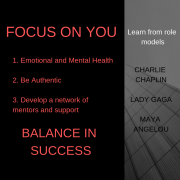Resiliency – Voice of the Students (Day 2)
SUCCESS IS NOT FINAL, FAILURE IS NOT FATAL. IT IS THE COURAGE TO CONTINUE THAT COUNTS.
Winston S. Churchill
Before we dive into all the reasons why resiliency is important and how we can cultivate a resilient mindset, let’s put into context what resiliency is. To better understand, we have interviewed two groups of people- college students and working professionals. In this post we our main takeaways and the full interviews with college students. Enjoy!
Resiliency: Through the Eyes of College Students
We interviewed three college students from entirely different colleges and backgrounds. They will remain anonymous in this post. Below are the full interviews.
Interview 1:
Interviewee Profile: Female student, Bachelors Degree in Law from University of Edinburgh
Q: In a brief sentence, explain what resiliency means to you.
A: Resiliency is not giving up in the face of repeated and constant failure.
Q: Describe a time that was particularly stressful in college. What happened? Why was it stressful?
A: During my 3rd year in college I had to manage applying to jobs with my normal class workload. In the beginning, I felt unable to give my all to both and I felt lost in the mountains of tasks I had to do, causing me to experience a significant amount of stress.
Q: How did you cope with that stressful time? What techniques do you use to cope with daily stress?
A: I went to lot of career counseling to cope with that stress and to see what I could do to manage my time more effectively. To cope with daily stress I try to take one thing at a time, prioritize tasks, keep busy, and definitely meditate everyday.
Q: Did you find career counseling useful in helping you manage your stress?
A: It was helpful, having a professional walk you through techniques you can use is definitely useful. It does get difficult when counselors are spread thin because they need to cater to so many students though.
Q: Have you had conversation with colleagues/friends on the topic of resiliency?
A: I have had numerous conversations with friends about resilience as some of them felt overwhelmed in that space too. It helped to know I was not alone.
Q: Do you think resiliency is important? Why? Or why not?
A: It is important, you need to be able to accept failure as a mere obstacle, learn from it, and move forward positively instead of it becoming an absolute block in achieving your goals. Life never works in your favor all the time and the ability to recognize that and keep trying is very important.
Q: Do you think enough is being done to foster resiliency in colleges? If not, what do you think can be done to cultivate a resilient mindset in students?
A: I do not think enough is done to foster resilience in college. There needs to be more seminars and talks about how to manage your time effectively. I feel there is just an expectation that all students will know how to cope and adapt, but that is not the case. In my experience, law is a very competitive degree and there is the attitude that every person is looking out for themselves. It is easy to feel lonely and that you are not doing compared to your competition and that mindset just fosters stress and anxiety instead of resilience.
Interview 2:
Male student, Bachelors of Science in Computer Science from Georgia Institute of Technology
Q: In a brief sentence, explain what resiliency means to you.
A: The ability to stand back up and return to a positive mental state when you face a major difficulty.
Q: Describe a time that was particularly stressful in college. What happened? Why was it stressful?
A: I failed my first test for my CS1331 class in my freshman year and made a C in the class. It was stressful because it made me question whether I was cut out for the field or the school.
Q: How did you cope with that stressful time? What techniques do you use to cope with daily stress?
A: Socializing with friends and just studying the material longer and harder. Telling myself I failed that test not because of incompetence but a lack of preparation and experience.
Q: Have you had conversation with colleagues/friends on the topic of resiliency?
A: Yes it is a topic that has come up before.
Q: Do you think resiliency is important? Why? Or why not?
A: Yes, I think resiliency is more important than IQ or talent because everyone gets knocked down from time to time. It is not necessarily the smartest that get to the top but often the most resilient.
Q: Is there someone you look up to because of their resilience? Why?
A: I look up to Steve Jobs. He got kicked out of his own company, made a competing company called Next which got acquired by Apple and eventually became CEO of Apple again. I think his story is very inspiring.
Q: Do you think enough is being done to foster resiliency in colleges? If not, what do you think can be done to cultivate a resilient mindset in students?
A: No, I don’t think enough is being done especially since there are some majors that are not capped and that have difficult weed out courses. In my opinion, having deliberate obstacles like that does not encourage resiliency. I reflect often on the Japanese proverb, “Fall down seven times, get up eight”. We should put that up somewhere on campus as a daily reminder.
Interview 3:
Female student, Bachelors of Science in Business Administration from Georgia Institute of Technology
Q: In a brief sentence, explain what resiliency means to you.
A: I think resiliency means to fight against a difficult situation to get better.
Q: Describe a time that was particularly stressful in college. What happened? Why was it stressful?
A: I transferred in from another college and my first semester at Tech was super stressful. I didn’t know anyone and I found the teaching style and curriculum difficult compared to my previous college. In a nut shell, adjusting to a new environment was super stressful.
Q: How did you cope with that stressful time? What techniques do you use to cope with daily stress?
A: I tried to meet as many people as I could and had one-on-one meeting with professors to help me through my classes. Now, I try to stay as positive as I can anytime I am faced with challenges.
Q: Have you had conversation with colleagues/friends on the topic of resiliency?
A: This has not been a topic that has come up with people. A lot of people I talked with did not really care about this.
Q: Do you think resiliency is important? Why? Or why not?
A: I think resiliency is very important because everyone goes through a tough time or situation. If you don’t know how to handle and cope with the situation, you might feel trapped and unable to move on.
Q: Do you think enough is being done to foster resiliency in colleges? If not, what do you think can be done to cultivate a resilient mindset in students?
A: No, not at all. I think resiliency needs to come from student organizations that can influence students. For example, fraternities and sororities can host events on this topic to reach a larger audience. Similarly, classes such as GT1000 (introductory freshman classes) can be focused on this topic to help guide freshman as they acclimate to college life.
Main Takeaways:
- Students understand what resiliency is and are able to articulate it. Their definitions are similar to psychology definitions that define resiliency as the ability to cope and adapt to stressful situations and to bounce back from those situations.
- Techniques that students use to cope with stress include socializing, seeking community, counseling, sharing experiences with confidants and meditating. All of these are experiences or environments that students actively seek and were not solutions initiated by colleges.
- All students agreed that resiliency is very important. Some have had conversations about resiliency with friends and others have not. Raising awareness and fostering conversations on this topic is an area of improvement in the college environment.
- All students believed their colleges were not doing enough to foster a resilient mindset in students. Some believed the structure of classes and college environment made learning stressful to the point that failure was not a viable option as it prevented students from learning that failure is part of life and something to learn from.
- Possible solutions that can be implemented in colleges are talks or seminars on the topic of resilience that both highlight its importance and ways to build it within ourselves. The involvement of student organizations is a potential way to reach a large audience and to influence the way students think across the board.
This Blog post is a second part of the five part blog series. Read part one here.
About the Author:
Roshni Ramaswamy has recently graduated from Georgia Institute of Technology, majoring in Chemical and Biomolecular Engineering and a proud mentee of the WINGS Signature Program. She is a Project Engineer at Environmental Planning Specialists. She enjoys sharing her perspectives on mentoring, resilience, academic life, professional development among a myriad other topics. Follow Roshni at the link shared for her viewpoints.











